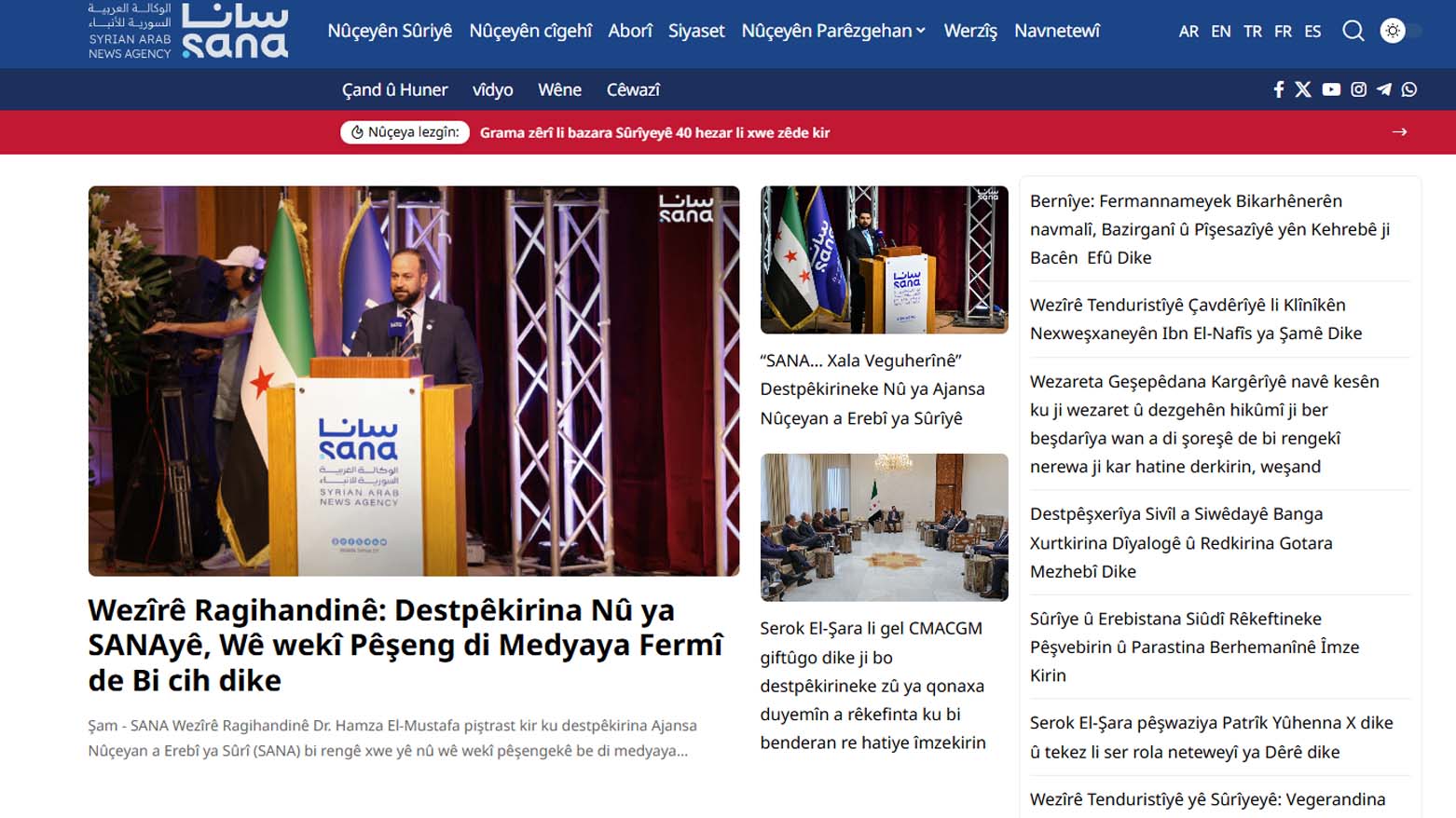SANA Introduces Kurdish-Language Programming in Post-Assad Media Reforms
The establishment of a new political system in Syria marked the complete dissolution of the previous regime and ushered in a period of restructuring across state institutions.

ERBIL (Kurdistan24) – The Syrian News Agency (SANA) has announced sweeping reforms to its media operations, including the launch of Kurdish-language programming, as part of broader changes following the fall of the Assad regime in December 2024.
The establishment of a new political system in Syria marked the complete dissolution of the previous regime and ushered in a period of restructuring across state institutions. As part of these reforms, the new authorities have instructed SANA to expand its multilingual services to better reflect Syria’s diverse society.
In addition to Arabic, SANA programs will now feature Kurdish (Kurmanji), French, and Spanish.
Syrian Information Minister Hamza al-Mustafa said the reforms are intended to ensure that SANA represents the entire Syrian population. “For decades, the Assad regime denied minority groups the right to express themselves in their own languages. This is a step toward correcting those injustices and embracing Syria’s true diversity,” he stated.
SANA Director General Ziad al-Mahamid admitted that under the Ba’ath regime, the agency failed to adequately reflect Syrian society. “Our broadcasts did not meet the standards or represent the realities of our communities. This must change,” he said.
Reactions among Kurdish intellectuals and writers have been mixed. While some welcomed the move as an overdue recognition of the Kurdish people’s cultural and linguistic rights, others dismissed it as a political strategy by the new authorities aimed at securing Kurdish support and easing long-standing tensions.
Under the Assad regime, the use of minority languages such as Kurdish was heavily suppressed as part of a broader strategy to enforce Arab nationalism and cultural homogeneity. Kurdish communities, in particular, faced restrictions on cultural expression, with Kurdish names, music, and literature often banned or censored. This historical context of language suppression created deep-seated grievances among minority groups, making the recent media reforms a significant step toward rectifying past injustices and promoting inclusivity in the new political landscape.
